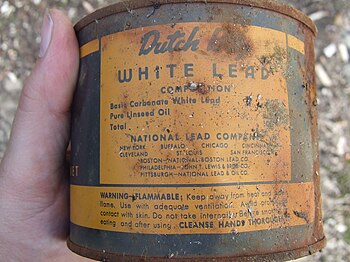Plaintiff in mesothelioma case sought production of defendant's (Union Carbide Corp) employees' workers' compensation claim records. The corporate defendant, Union Carbide Corp) sought to restrict access and limit dissemination of the records of the workers' compensation matters sought through discovery.
Confidentiality is a two sided sword. Historically asbestos litigation had its genesis in workers' compensation claims. In this instance the Corporate Defendant sought the utilization of privacy restrictions as a defense.
Case reversed & remanded by Appellate Division so that Trial Judge could craft a Protective Order to embrace statutory "privacy requirements" of workers' compensation records. This decision restricts dissemination and use of discovery of workers’ compensation records obtained in this case for use in other matters.
"A participant in a workers' compensation hearing who agrees to the disclosure of medical records does so for the limited purpose of establishing a right to benefits, and does not intend or anticipate the release of that information for use in unrelated litigation."
Appellate Division ordered the trial judge to include the following restrictions:
"(1) the type of record requested; (2) the information it does or might contain; (3) the potential for harm in any subsequent nonconsensual disclosure; (4) the injury from disclosure to the relationship in which the record was generated; (5) the adequacy of safeguards to prevent unauthorized disclosure; (6) the degree of need for access; and (7) whether there is an express statutory mandate, articulated public policy, or other recognized public interest militating toward access."
The Court reasoned that both the Due Process Clause of the Fourteenth Amendment as well as the statutory restrictions of confidentiality N.J.S.A. 34:15-128(a)(1) and N.J.S.A. 34:15-128(3) required that a strict Protective Order be entered.
Seymoure v. A.O. Smith Water Products Company, et al 2016 WL 1589917 Decided 4/20/16
Limited time access at: http://www.judiciary.state.nj.us/opinions/a3967-14.pdf
Confidentiality is a two sided sword. Historically asbestos litigation had its genesis in workers' compensation claims. In this instance the Corporate Defendant sought the utilization of privacy restrictions as a defense.
Case reversed & remanded by Appellate Division so that Trial Judge could craft a Protective Order to embrace statutory "privacy requirements" of workers' compensation records. This decision restricts dissemination and use of discovery of workers’ compensation records obtained in this case for use in other matters.
"A participant in a workers' compensation hearing who agrees to the disclosure of medical records does so for the limited purpose of establishing a right to benefits, and does not intend or anticipate the release of that information for use in unrelated litigation."
Appellate Division ordered the trial judge to include the following restrictions:
"(1) the type of record requested; (2) the information it does or might contain; (3) the potential for harm in any subsequent nonconsensual disclosure; (4) the injury from disclosure to the relationship in which the record was generated; (5) the adequacy of safeguards to prevent unauthorized disclosure; (6) the degree of need for access; and (7) whether there is an express statutory mandate, articulated public policy, or other recognized public interest militating toward access."
The Court reasoned that both the Due Process Clause of the Fourteenth Amendment as well as the statutory restrictions of confidentiality N.J.S.A. 34:15-128(a)(1) and N.J.S.A. 34:15-128(3) required that a strict Protective Order be entered.
Seymoure v. A.O. Smith Water Products Company, et al 2016 WL 1589917 Decided 4/20/16
Limited time access at: http://www.judiciary.state.nj.us/opinions/a3967-14.pdf
















